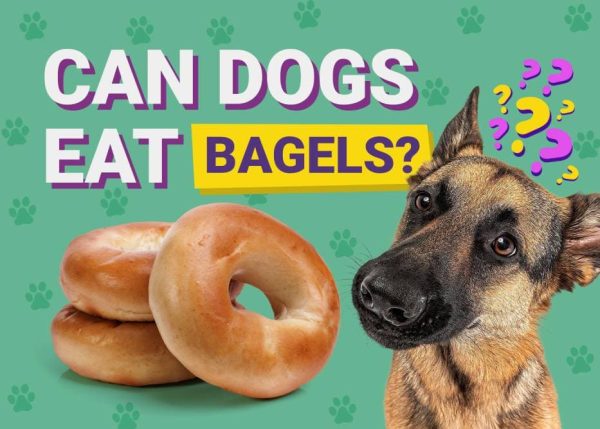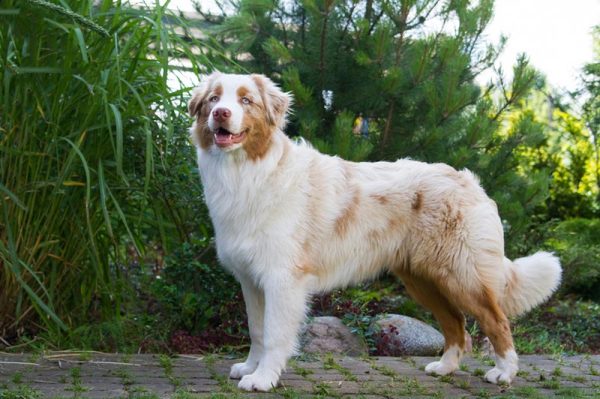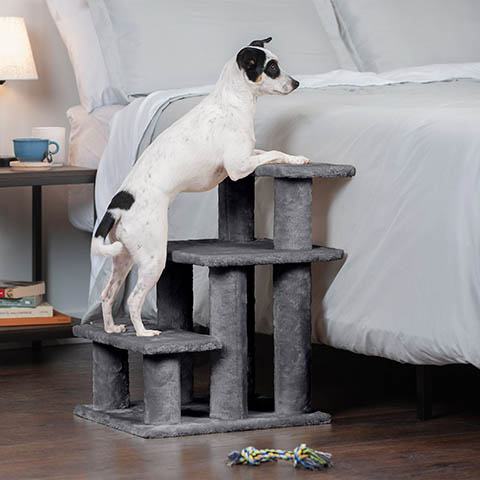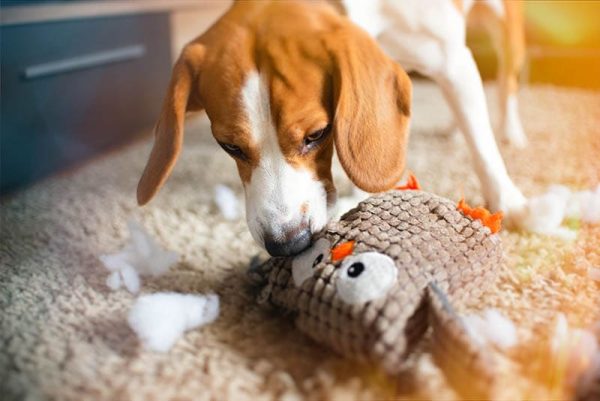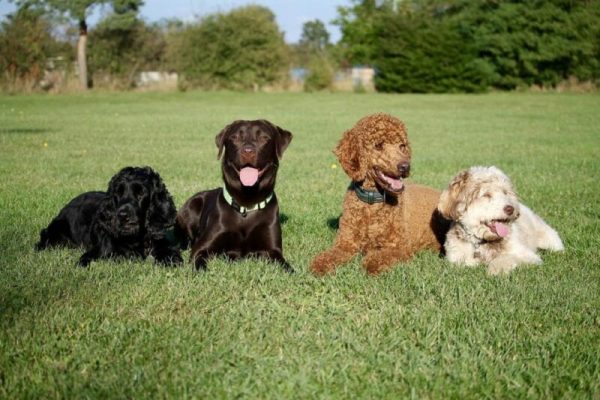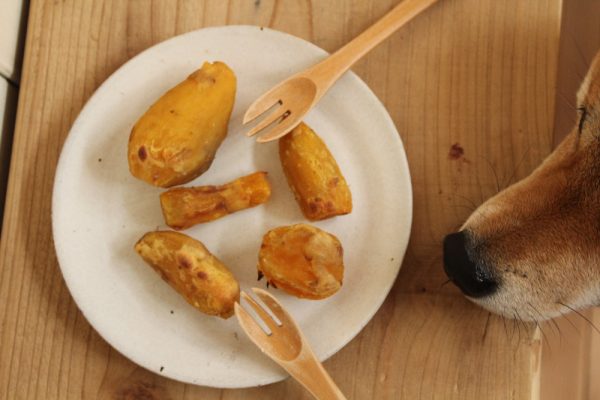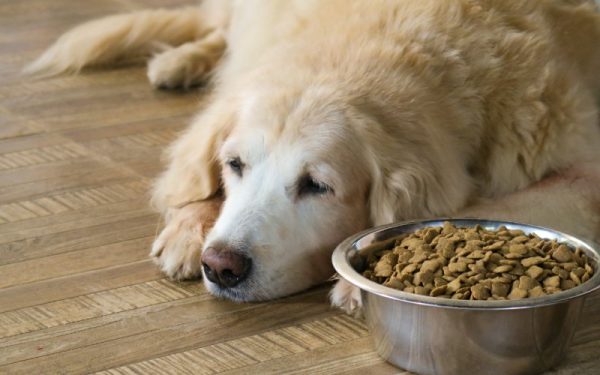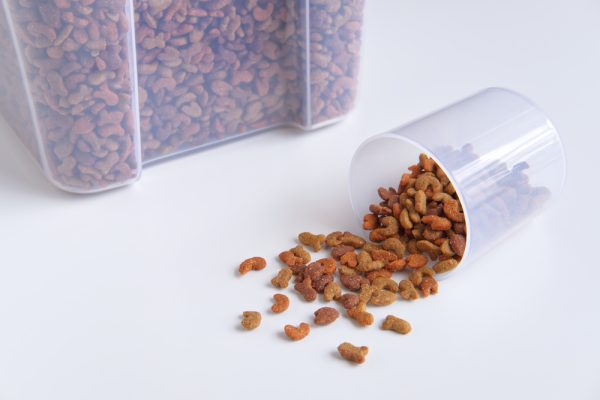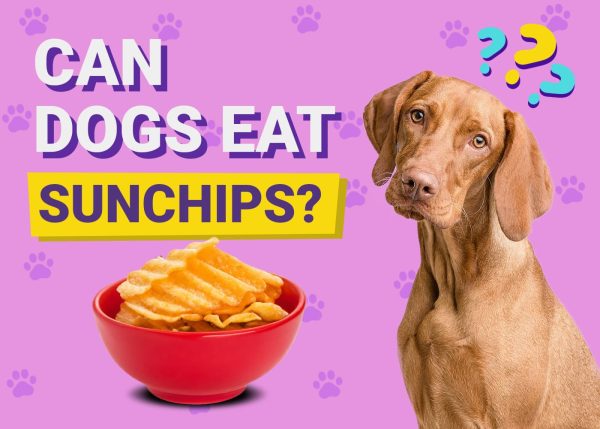In this article
View 2 More +Thanksgiving is an important holiday for many families and friends in various countries. Since we count our dogs as members of our families, it’s only natural that we want to include them on this special day.
For most families, Thanksgiving is all about the food! Therefore, it’s essential that you know which Thanksgiving food dogs can eat and what you should absolutely avoid.
Many foods commonly served on the holiday contain ingredients toxic to canines, so here, we help you navigate the do’s and don’ts of feeding common Thanksgiving foods to your pup and which foods can be used as Thanksgiving dog food.
The 10 Safe Thanksgiving Foods for Dogs
1. Turkey
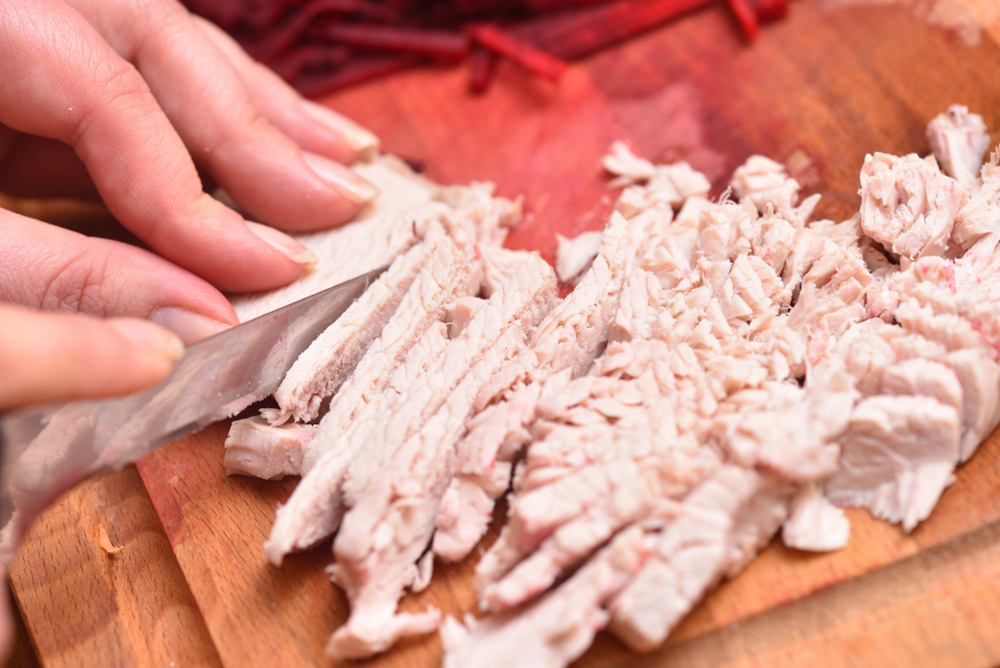
Turkey is a safe and healthy food for canines, but it comes with a few caveats. Dogs shouldn’t have turkey skin or bones or any seasonings, sauces, or gravies.
The skin is fatty and is usually covered in bastings and spices, all of which are bad for your dog. Too much fatty stuff can lead to obesity and pancreatitis, and the bones can splinter and damage the dog’s mouth and digestive tract.
Seasonings, including salt, can lead to toxicity, so you’ll also need to avoid processed turkey.
2. Pumpkin
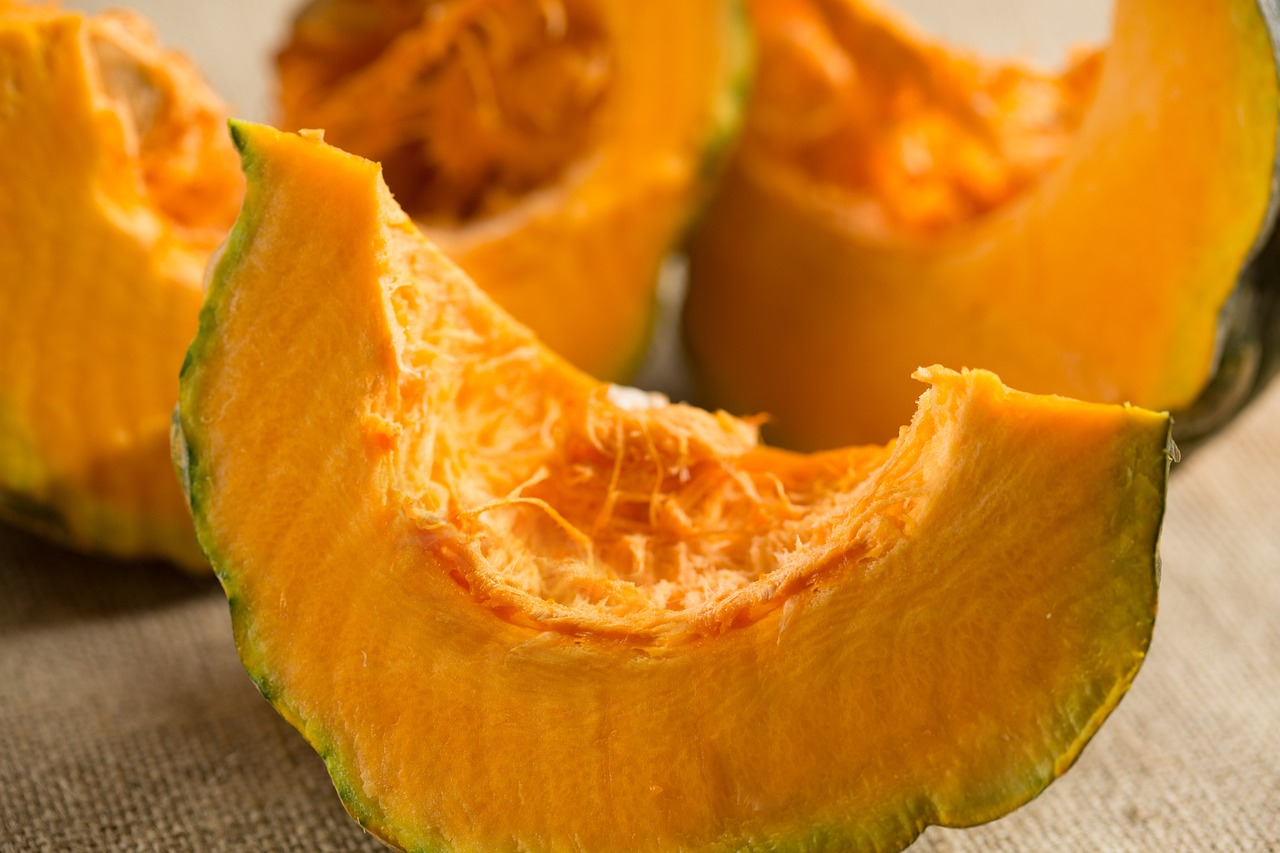
Pumpkin is considered healthy for dogs, which is why you can find many dog foods with pumpkin as an ingredient.
At home, ensure that any pumpkin that you give to your dog doesn’t have any added spices, sugar, or artificial sweeteners (especially not xylitol, which is highly toxic to dogs). Canned or fresh pumpkin is good as long as the canned version isn’t pre-seasoned, and definitely don’t give pumpkin pie to your pup!
3. Sweet Potatoes
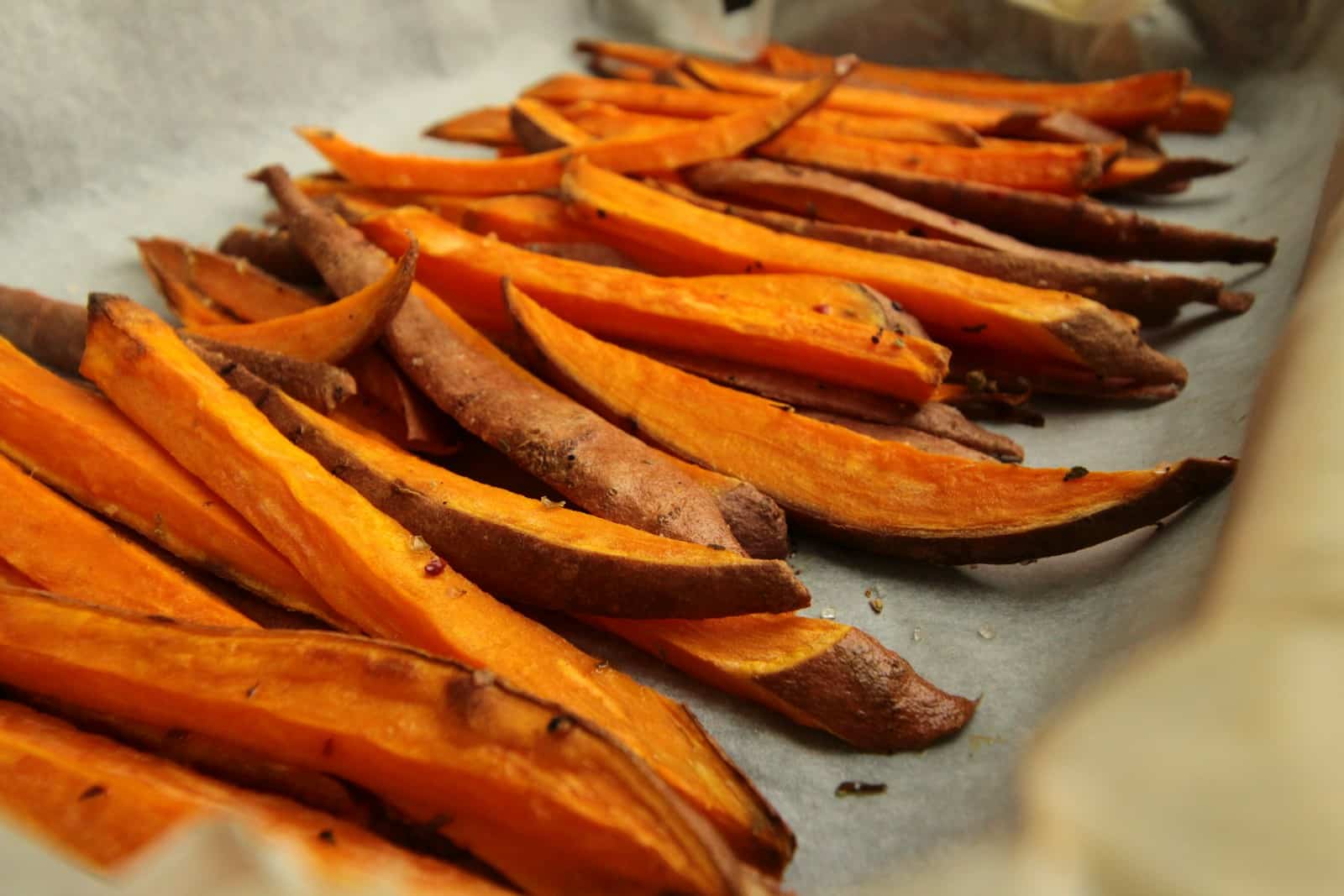
Sweet potatoes are healthy for canines because they are full of nutrients and vitamins. Of course, leave out the marshmallows when you share sweet potatoes with your dog.
The potatoes should be cooked, and only give a small amount to your pet, without any seasonings or butter.
4. Green Beans
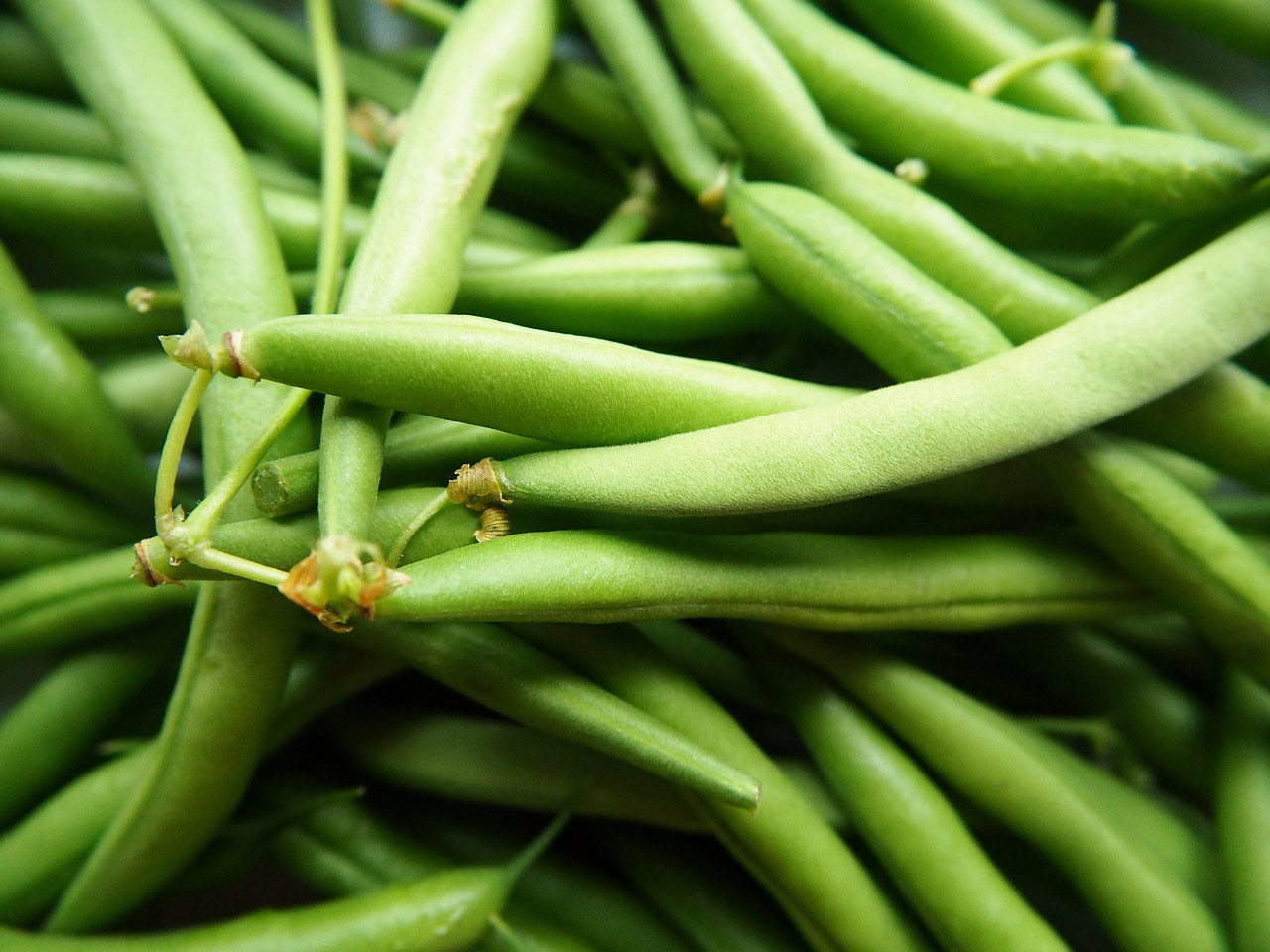
Green beans are full of vitamins, fiber, and manganese and are considered healthy vegetables. But like everything else, they must be served plain to dogs, without the butter and salt. They can be cooked (just not in a casserole), steamed, raw, or canned.
5. Cranberries
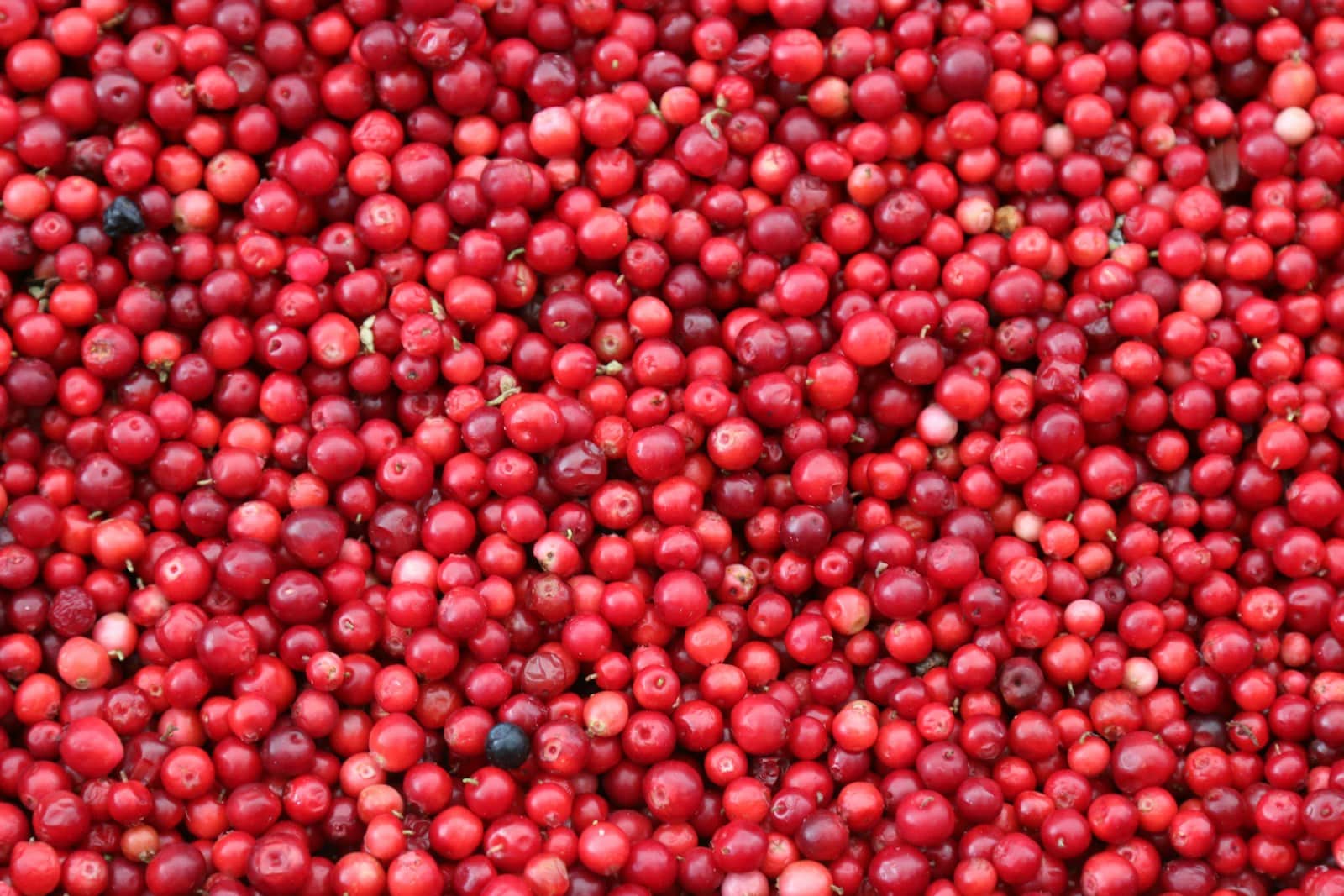
Cranberry sauce and juice are not good for dogs due to all the sugar. But plain cranberries are safe as long as they’re offered in moderation. Just ensure that you only give them cranberries and not any other items if you get them out of a dried fruit pack.
6. Corn
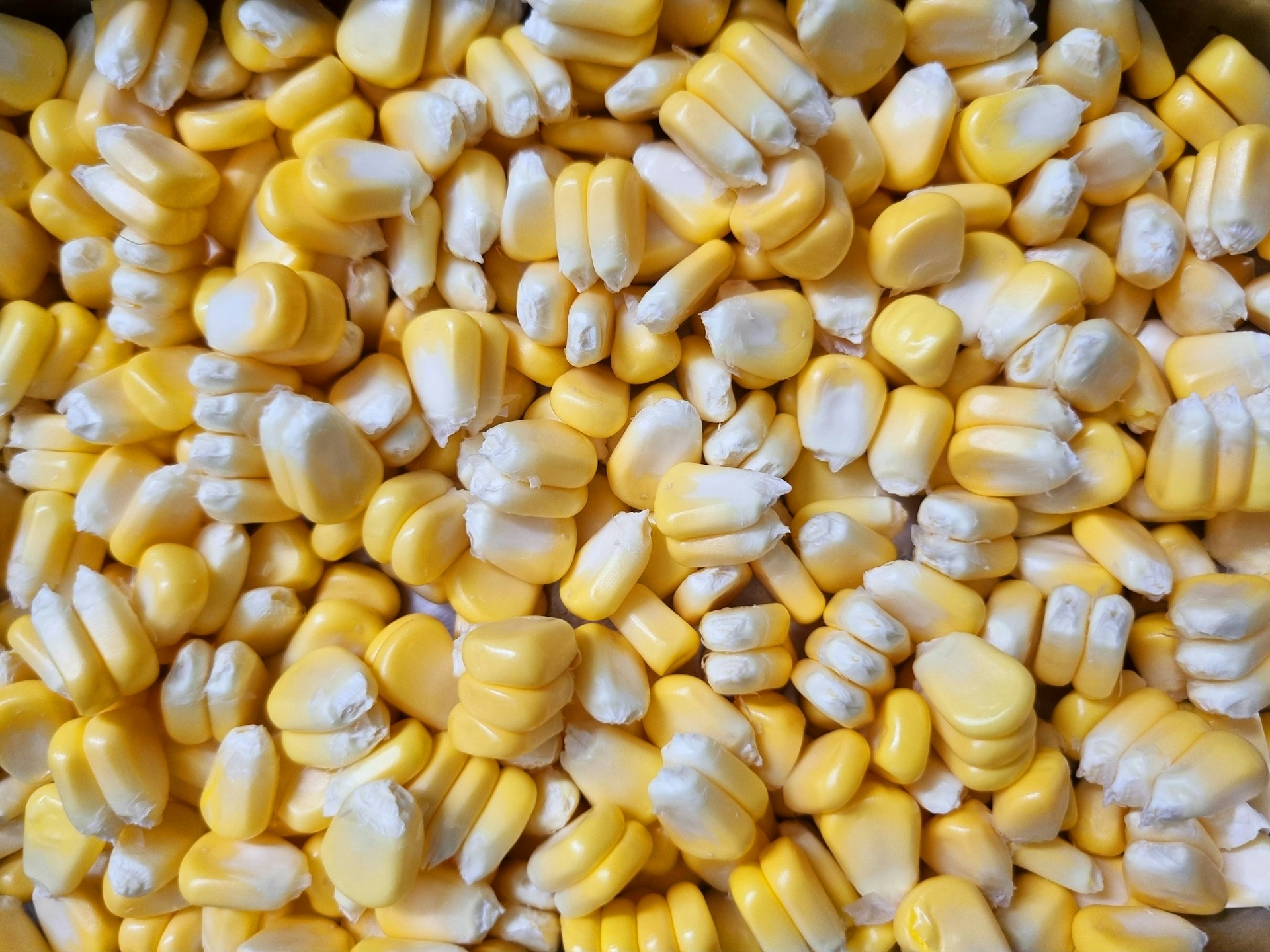
Corn is a healthy veggie for dogs, but don’t add butter or salt, and don’t give them an entire cob. That can prove to be a choking hazard or cause intestinal blockage.
7. Cheese
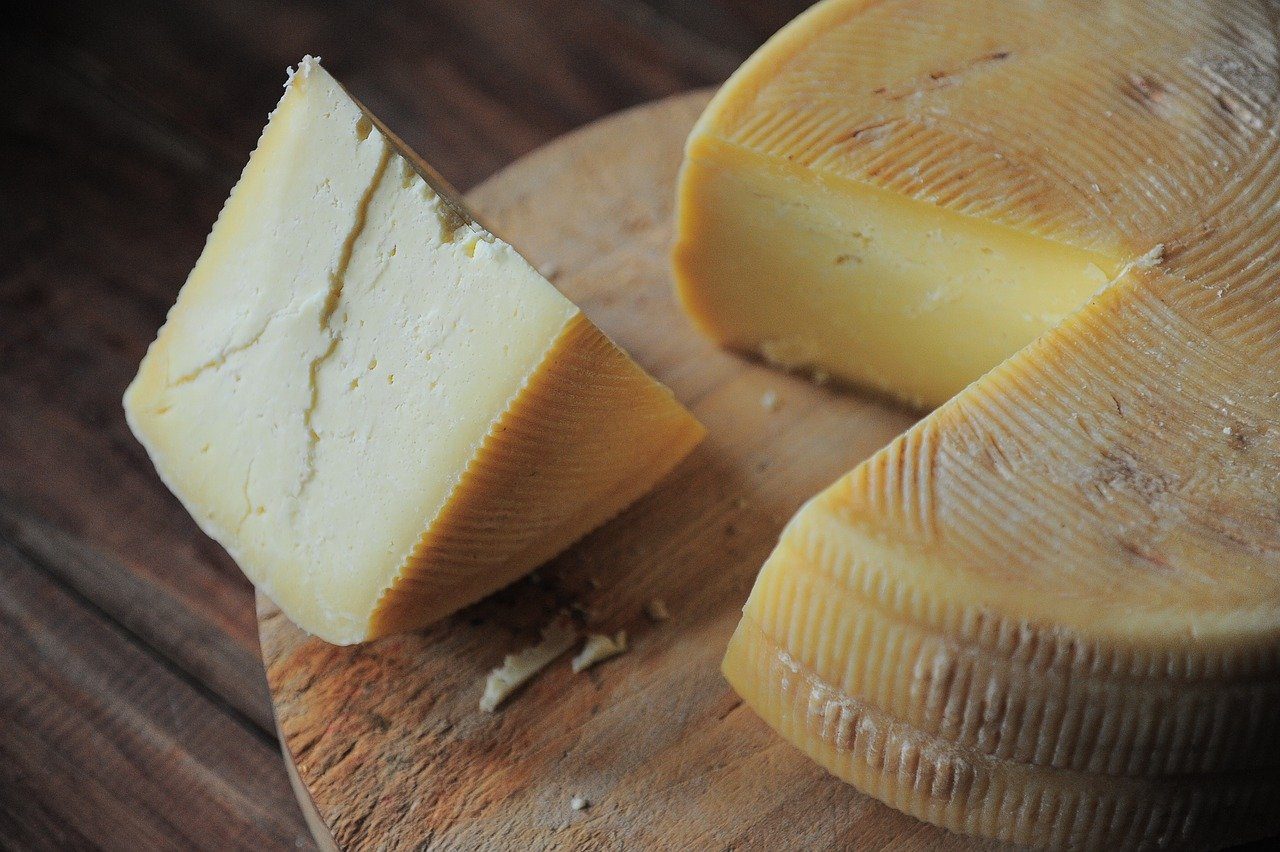
Cheese is a tasty treat for dogs, but do stay clear of dairy if your dog is lactose intolerant. Aim for low-fat cheeses if you’re also concerned about your dog’s weight.
8. Apples

If you’re planning on making a tasty apple pie, forgo the pie for your dog, and give them plain apple slices. Apple is healthy and tasty for canines, but ensure that you don’t give your pet any of the core, especially not the seeds.
Apple seeds contain small amounts of cyanide, which won’t harm your dog unless they eat too many. But it’s best to err on the side of caution.
9. Bread
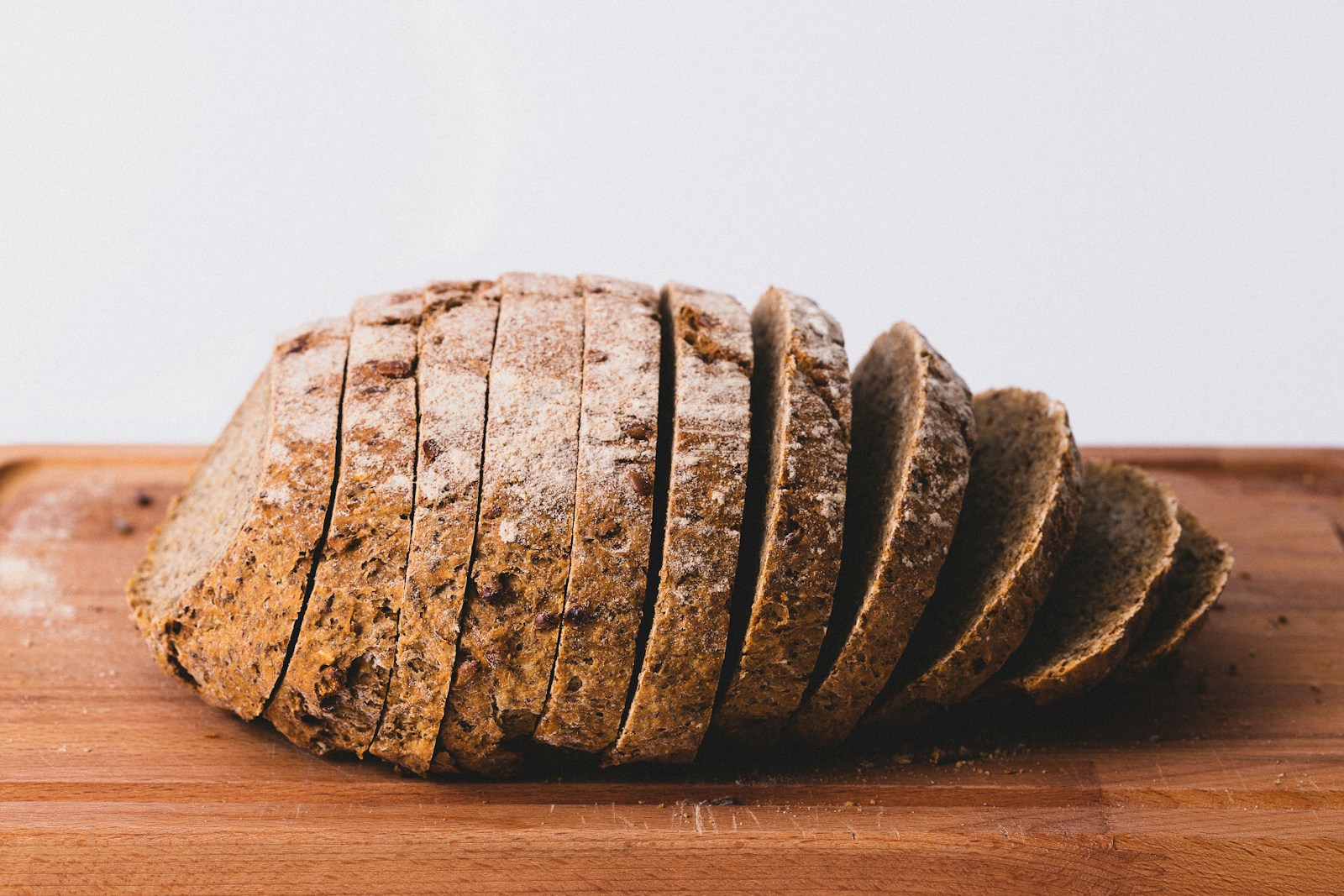
A small amount of plain bread is safe for dogs unless they have a grain allergy. Any bread that you give your pup should not have any added ingredients, such as raisins, seeds, or nuts. Canines don’t get many nutritional benefits from bread, anyway, so it should only be an occasional snack.
10. Carrots, Celery, Peas
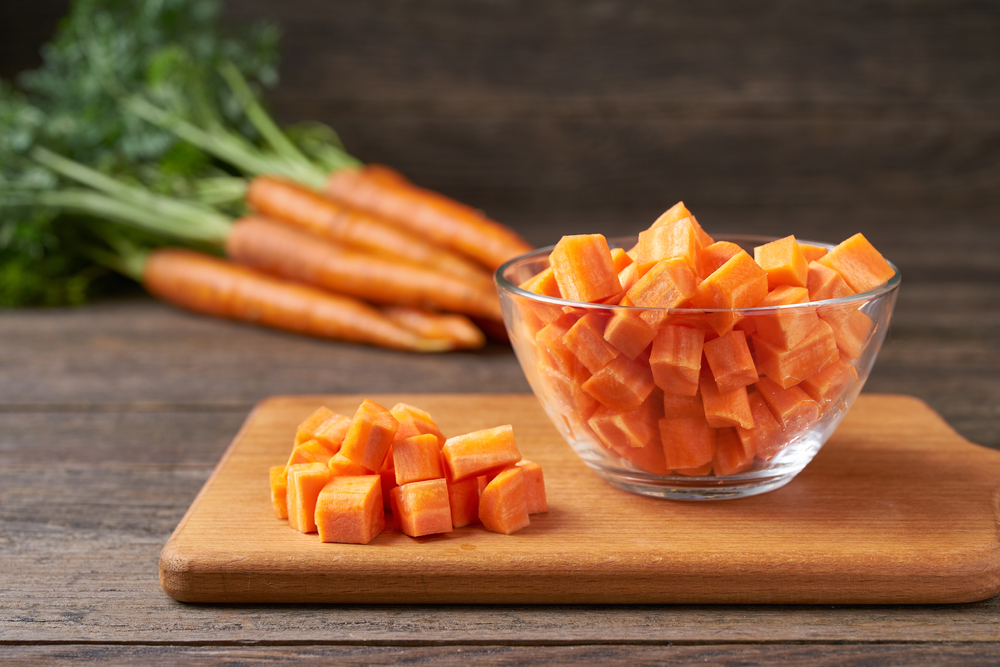
These vegetables are healthy and safe for dogs as long as you leave off the seasonings. Cooked or raw works well—just ensure that you cut the celery and carrots into bite-sized pieces to prevent your pet from choking.

The 10 Unsafe Thanksgiving Foods for Dogs
1. Onions
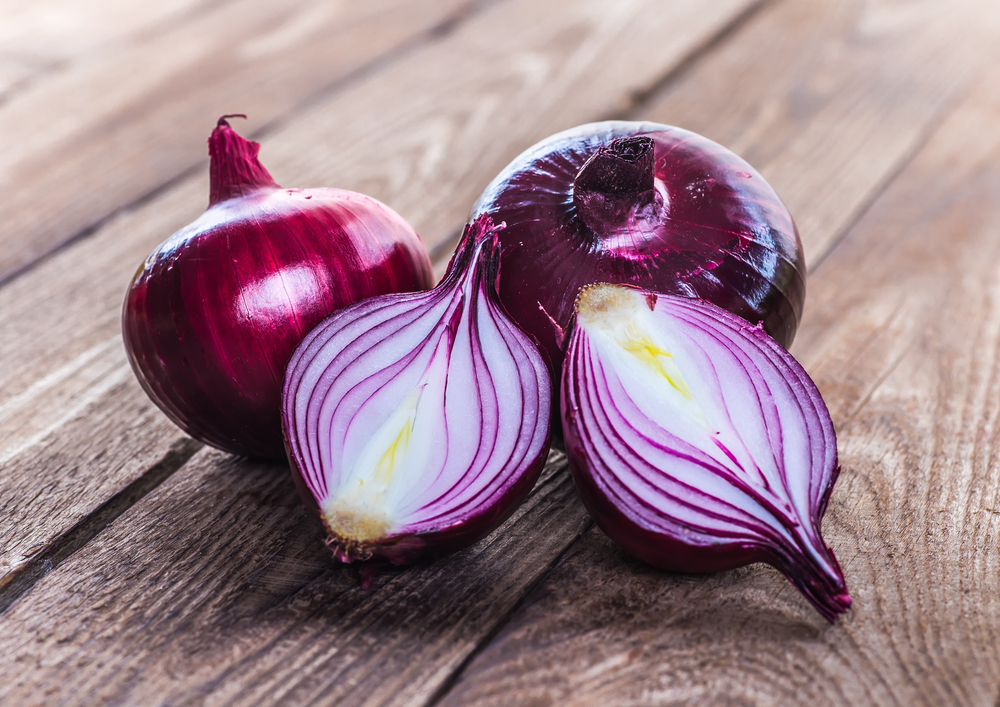
Onions are highly toxic to canines, which also includes everything found in the onion family, such as shallots, chives, and leeks. They can cause anemia and liver damage.
2. Garlic
Garlic is more potent than onions, so it is also highly toxic. This includes garlic powder. It can cause anemia, amongst other issues.
3. Stuffing
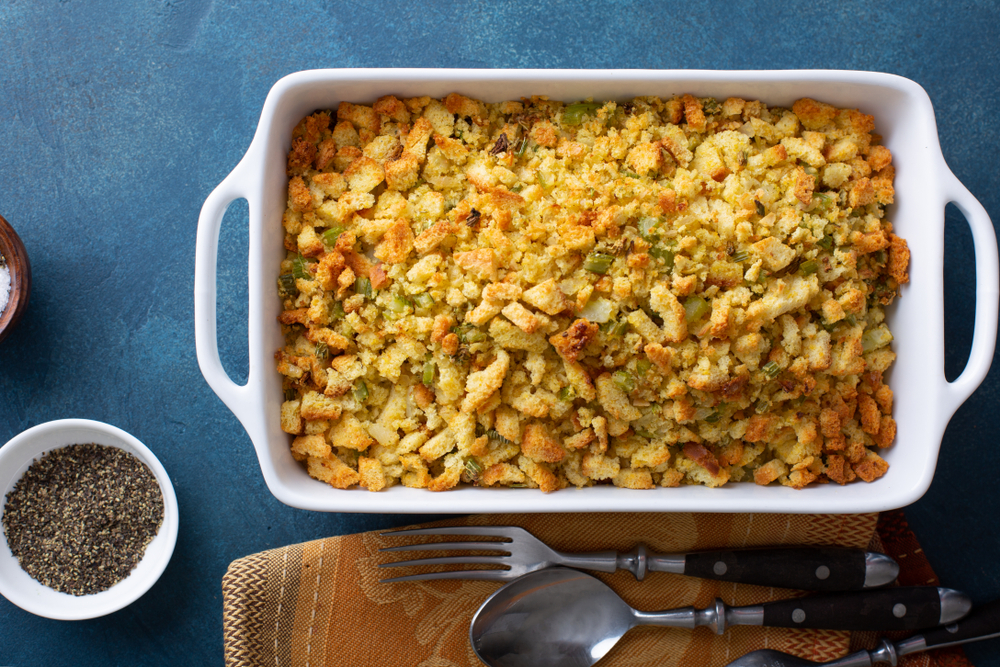
Now that you know about the toxicity of onions, you should understand why dogs can’t have stuffing. There is also usually a large amount of butter, so not only does stuffing contain toxic ingredients, but it also has too much fat to suit the canine diet.
4. Mashed Potatoes
Completely plain mashed potatoes are fine, but considering that most humans don’t eat them that way, it’s best to avoid giving them to your dog. There’s too much salt and butter and other ingredients that are typically in mashed potatoes that aren’t good for canines.
5. Caffeinated Drinks

Caffeinated drinks are bad for pets. It doesn’t take much caffeine to lead to problems because most canines are smaller and weigh less than us. So, no tea, coffee, soft drinks, or anything else with caffeine should be given to your dog.
6. Chocolate
The combination of the chemicals theobromine and caffeine found in chocolate makes it toxic to dogs. These chemicals can lead to death if left untreated, and the signs of chocolate toxicity can occur relatively quickly.
7. Gravy
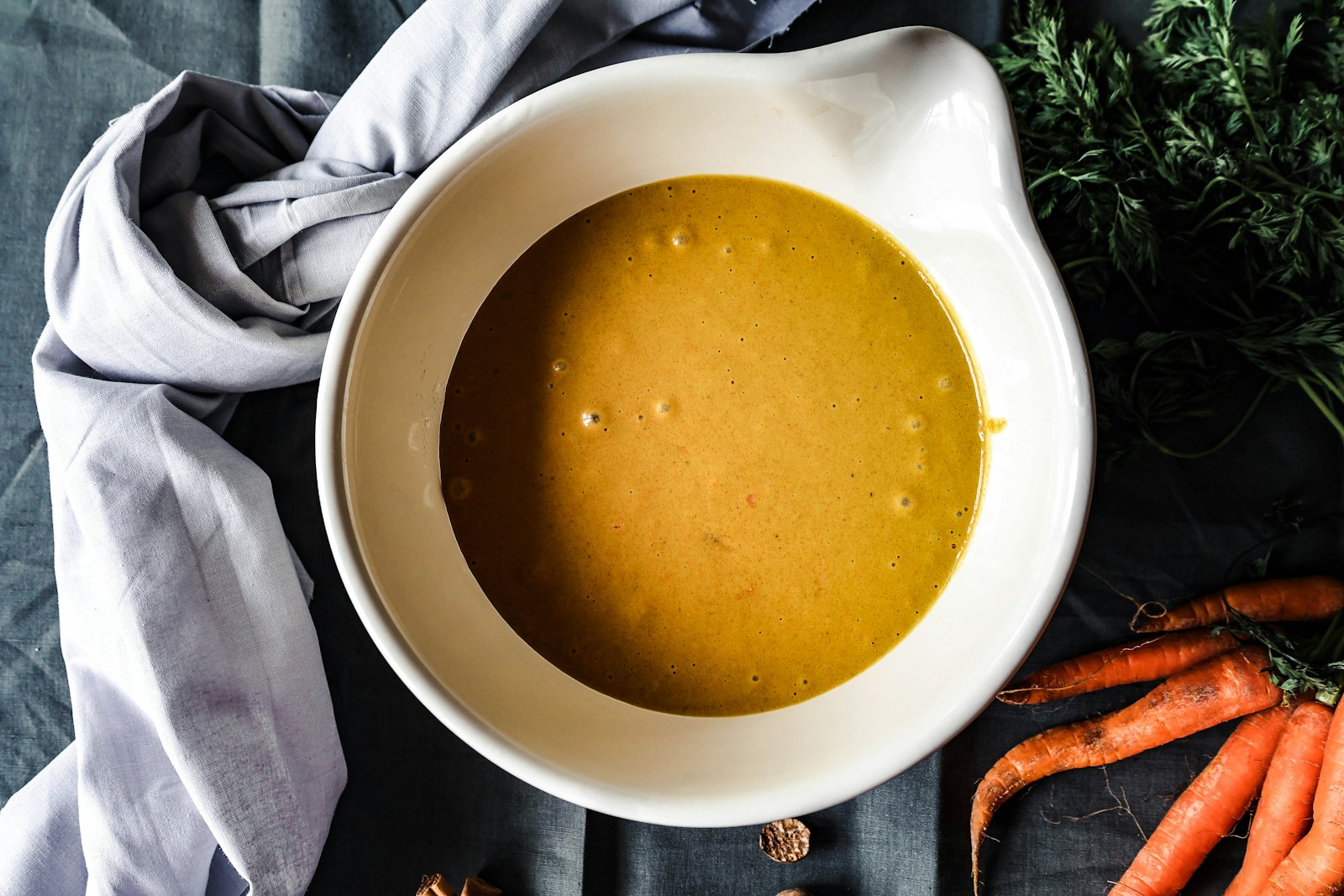
The biggest issue with giving gravy made for humans to dogs is the high levels of sodium. There can be additional ingredients, too, like onions or garlic, which are toxic to dogs.
8. Bread Dough
While small amounts of bread are safe for dogs, yeast-based bread dough is dangerous. The yeast will expand in the dog’s stomach, which can lead to bloat, which can then become the life-threatening gastric dilation-volvulus syndrome.
9. Alcohol
The ingestion of alcohol will lead to alcohol poisoning in dogs. This includes any form of alcohol, such as what we drink, rubbing alcohol, hand sanitizer, etc.
10. Grapes and Raisins
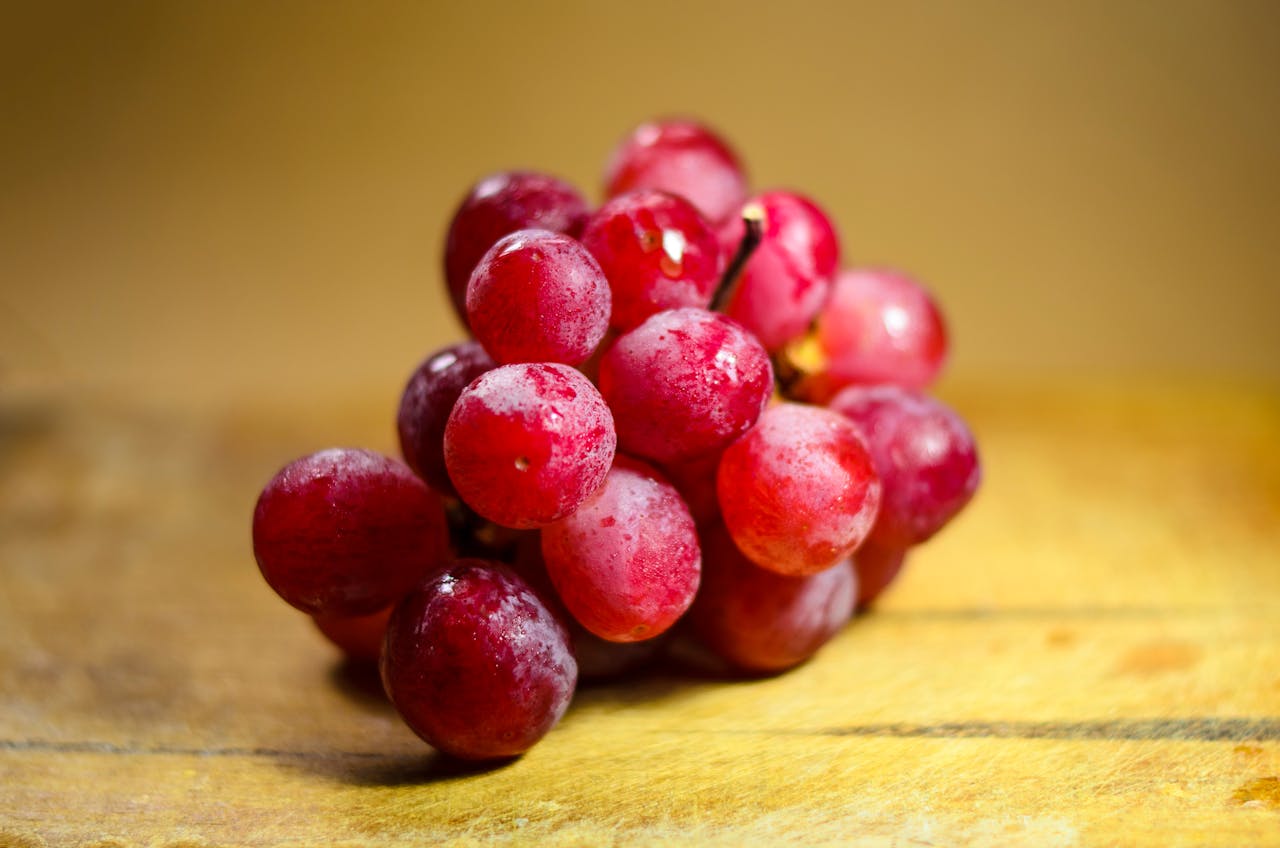
As innocent as the grape might seem, it is quite toxic to dogs, along with anything grape related, like raisins. The primary concern is kidney failure. Since raisins are simply dried grapes, they are more concentrated and therefore, more toxic.

What Should You Do If Your Dog Eats Something Toxic?
If you witness your dog eating something toxic, take them immediately to your veterinarian or the closest emergency animal clinic. You should bring the packaging and part of what your dog ingested with you, as this can help guide your vet to treat them for that particular substance.
If you’re unsure that what your dog ate was toxic, you can call the ASPCA Animal Poison Control at (888) 426-4435 or the Pet Poison Helpline at (855) 764-7661. Both services require a fee, but they can help you take steps to ensure that your pet gets immediate help.
If you need to speak with a vet but can't get to one, head over to PangoVet. It's our online service where you can talk to a vet online and get the advice you need for your pet — all at an affordable price!

Conclusion
As long as you’re careful, everyone can appreciate Thanksgiving, including your dog. Ensure that any ingredients and foods that you’re working with are not left out for your dog to gobble down, particularly if they are toxic for your pet.
But as long as you’re careful with the treats that you feed your dog, you’ll ensure their safety and can relax and enjoy the holiday with all of your loved ones.
Featured Image Credit: LightField Studios, Shutterstock




